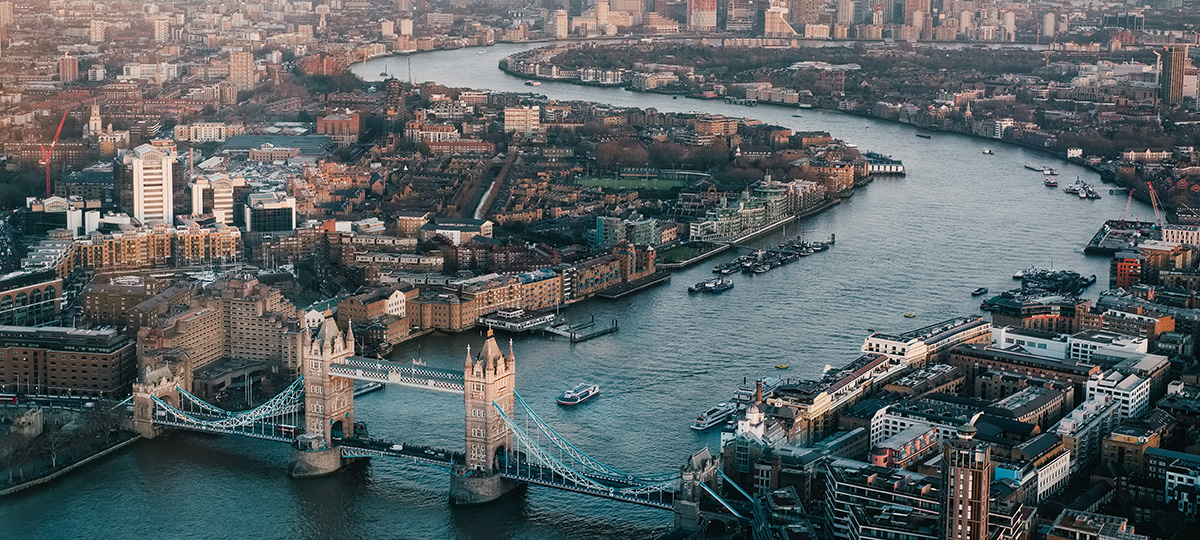UK & IRELAND TRAVEL TIPS
Time Zone
The United Kingdom and the Republic of Ireland both operate on Greenwich Mean Time (GMT).
Language
Irish (Gaelic) and English are the two official languages in the Republic of Ireland. Although Irish is the native language and is widely taught in schools, everyone speaks English.
English is the official language throughout the United Kingdom. Gaelic is still spoken in pockets of the Highlands and islands of Scotland. Welsh is an Indo-European language whose closest relatives are Cornish and Breton. At least a fifth of the population of Wales speaks Welsh as their native tongue.
Currency
The United Kingdom’s unit of currency is the Pound Sterling, divided into 100 Pence.
The Republic of Ireland’s unit of currency is the Euro, divided into 100 Cents.
Money Matters
Traveller's cheques are difficult to exchange here and are not recommended. Major credit cards (Visa and MasterCard) are widely accepted; Diner's Club and American Express much less so.
There is easy access to ATM outlets throughout in the Republic of Ireland and the United Kingdom. Keep in mind most international ATM machines only accept four-digit PINs. If yours is longer than that, contact your local bank in plenty of time before leaving home to have it changed. Additionally, all merchants in European countries who are accepting any form of credit card payment are now requiring card holders to enter their PIN instead of signing a receipt for sale transactions.
Foreign Exchange: Exchange currency only at authorised outlets such as banks and hotels, and exchange only what you think you will spend in-country. Coins cannot be reconverted on departure. Save all receipts from any currency exchange transaction. You may be asked to produce them when you exit the country, and they are required if you intend to reconvert local currency.
Tipping
Tipping in the United Kingdom: An amount equivalent to approximately GBP 30 per full day of sightseeing is suggested as a tip for your local guide(s), with GBP 20 suitable for your driver. For half-day excursions, equivalents of GBP 20 and GBP 10 are appropriate for guide and driver respectively. Transfer drivers should be tipped at a rate of about GBP 10 per service, transfer rep at your discretion. For driver-guides, equivalents of GBP 40 for full day or GBP 25 for a half day of service. These suggestions are per service.
Tipping in the Republic of Ireland: An amount equivalent to approximately EUR 40 per full day of sightseeing is suggested as a tip for your local guide(s), with EUR 25 suitable for your driver. For half-day excursions, equivalents of EUR 25 and EUR 15 are appropriate for guide and driver respectively. Transfer drivers should be tipped at a rate of about EUR 5 per service and transfer rep at your discretion. A driver-guide should be tipped EUR 40 for a full day or EUR 25 for a half day of service. These suggestions are per service.
Transfer assistance is at your discretion but if a Guardian Angel performs a special service for you, it would be appropriate to tip him or her at the same rate you would tip a hotel concierge for similar assistance.
Taxi drivers would appreciate a gratuity of rounding up the fare.
Restaurant Service: A charge for service is often added to restaurant checks but if not, a typical gratuity would be equal to 10-15% of the total.
Weather
Best time to go to the UK and Ireland
The months from April to October are the traditional time to visit the British Isles. As well as being the warmest time of the year, it is also when British Summer Time extends daylight long into the evenings. It is during this period that visitor attractions are fully operational, and when many social and sporting occasions take place.
During the months from April to June, the countryside bursts into bloom. Wild daffodils and bluebells herald the start of the season when gardens are at their most colourful.
July and August are the hottest months in the year, both in terms of temperature and events! The abundance of thrilling competitions, breathtaking festivals and plenty of other colourful events, some of which are detailed below, cater for all tastes. However, if you fancy a family vacation or a relaxing retreat from everyday life in one of the stunning resorts, there's a great variety to choose from.
During the winter months, days are short and the temperatures are often cold. Many attractions in the countryside close for the season. However, the city museums and sights remain open, and their restaurants and theatres will be in full swing.
Visitors who travel over Christmas or New Year may enjoy these celebrations in the cities. But this is also a time when the country house hotels offer festive programs which make an excellent addition to a city break.
Clothing
Conservative "smart casual" clothing will be most useful for daytime touring. European daywear is considered to be somewhat formal (especially in larger cities). Therefore shorts are worn only for sporting activities.
For the United Kingdom and the Republic of Ireland, cotton and other light fabrics are comfortable choices for warmer summer days but lightweight sweaters and waterproof jacket are often necessary too. Spring and early autumn temperatures dictate medium-weight clothing selections. Winters can be considerably colder and warm clothing is recommended, including a hat and gloves.
We also recommend you bring comfortable walking shoes with low or no heels, a small umbrella or light raincoat and a swimsuit as some hotels have pools. Authorities in many European countries will not allow visitors in bathing suits or revealing clothing to enter archaeological sites or churches.
When dining at night it may be appropriate for gentlemen to wear a jacket and tie, with an equivalent standard of eveningwear for ladies.
Laundry Service is generally available at your hotels. Prices can vary widely though, so please note price lists (and return timing) before using this service.
Avoiding the Baggage Blues: Baggage allowances vary according to airline –check your airline for details. Do NOT pack or bring prohibited items to the airport – check the airports relevant to your trip. Make sure there is contact information inside your bags as well as outside. In case your luggage is delayed make sure you pack essential supplies such as medication, contact lenses, toiletries, etc. in your carry-on bag.
Health
It is important that you check with a qualified health professional for the most current information concerning your travel itinerary and personal health history. Tap water is generally considered safe to drink in the United Kingdom and the Republic of Ireland but we recommend you stick to bottled water. We suggest you carry a simple travellers' first-aid kit containing remedies for headache, minor stomach complaints, motion sickness and colds, as well as band-aids, antiseptics and/or other items as you and your doctor feel may be required. Some of the places you'll visit in the United Kingdom and Ireland are not easily accessible by vehicle. Sightseeing on this itinerary may require, at minimum, the ability to walk at a moderate pace for a mile or two, and the balance and agility necessary to climb stairs, enter and exit trains and buses, and navigate uneven or cobble-stoned streets. Some sightseeing stops do not have elevators or wheelchair access. These circumstances can make this European journey more strenuous than an itinerary that visits a developing country in Asia or Africa, where most sightseeing takes place from a vehicle. We do recommend that you take out comprehensive travel insurance to cover you in the event of a medical emergency.
For up to date information on latest health and vaccination recommendations, please contact your doctor.
Electricity
Electrical service throughout the United Kingdom and the Republic of Ireland is supplied at 220 volts/50 hertz.
Photography
Etiquette requires that you ask permission before photographing local people, unless you are shooting a crowded public scene. This applies especially to small children. Please be considerate of a desire not to be photographed. Photography is not permitted at some designated locations, which may include some museums and private houses, for example. These areas are usually clearly marked. In general, avoid taking photographs of airports, government buildings and installations, bridges and military or police personnel. If in doubt, please ask—and avoid having your film or camera confiscated. Some churches and museums in Europe charge a fee for photography or video-recording. Your local guide will advise when a fee is required.
Arrival and Departure Formalities
On arrival in the Republic of Ireland and the United Kingdom you will be asked to show your passport and complete a Visa Waiver Form, which requests basic personal and passport information.


